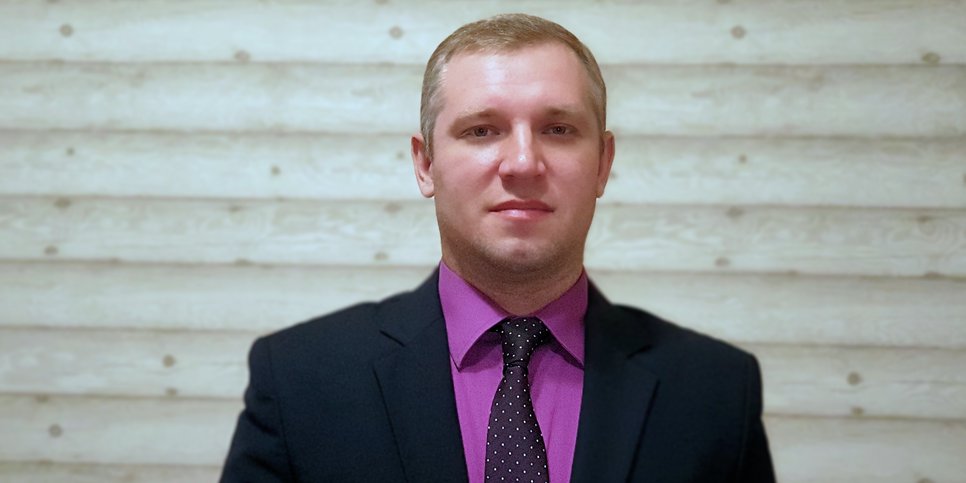In the photo: Anatoly Vilitkevich
In the photo: Anatoly Vilitkevich
The Court in Bashkiriya Sentenced Anatoliy Vilitkevich to Two Years of Conditional Sentence for Discussing the Bible With Friends
BashkortostanOn September 27, 2021, the judge of the Leninskiy District Court of Ufa, Oksana Ilalova, found Anatoliy Vilitkevich guilty of participating in the activities of an extremist organization and sentenced him to 2 years of suspended imprisonment with a probationary period of 3 years and restriction of liberty for 6 months for his faith in Jehovah God.
The verdict has not entered into force and can be appealed. The believer insists on his complete innocence.
Although there is not a single victim in the case, the prosecutor asked the court to sentence Vilitkevich to 7 years in a general regime colony. Passing the verdict, the judge reclassified the charge from Part 1 (organizing the activities of an extremist organization) to Part 2 of Art. 282.2 of the Criminal Code of the Russian Federation and appointed Anatoly a punishment not related to imprisonment.
Master of finishing works Anatoliy Vilitkevich became one of the first to be imprisoned because of his faith after the decision of the Supreme Court to liquidate legal entities of Jehovah's Witnesses in Russia. The criminal case under Part 1 of Art. 282.2 of the Criminal Code of the Russian Federation (organization of the activities of an extremist organization) was initiated against Anatoliy on April 11, 2018. A day earlier, mass searches took place in Ufa and its environs, after which Vilitkevich was detained. Taking the believer away, the security officials told his wife, Alyona, that she would not see him for a long time, and advised him to “look for a new husband”. Before these events, hidden video filming was carried out in the apartment of the spouses for six months.
Vilitkevich spent 2.5 months in a pre-trial detention center and almost 9 months under house arrest. For the last two and a half years, he was under recognizance agreement. In October 2020, the case went to court.
Many contradictions were found in the materials of the criminal case. Thus, the sheets of the case provided to the defense side differed from those used by the prosecutor. At one of the hearings, the prosecution witness denied that he had ever met the defendant, although this was mentioned in the testimony he signed. Another witness, referring to a bad memory, was unable to explain the contradictions in his testimony. Vilitkevich, speaking with the last word, reminded the court that during the trial the prosecution witnesses had repeatedly confused the defendant with his lawyer. All prosecution witnesses who knew Anatoliy personally characterized him as an honest, peaceful citizen.
Anatoliy Vilitkevich's lawyer drew the court's attention to the dubious nature of the religious examination. Its author, expert Marina Bignova, regularly “represents the Russian Orthodox Church” at public events and also criticizes Jehovah's Witnesses there.
During the trial, the court studied records of home worship, during which Jehovah's Witnesses discussed how to help fellow believers, see good in people, regularly read the Bible, and praise children. The state prosecution considered such actions to be a threat to the security of society and the state.
In his appeal to the court, Vilitkevich emphasized: “In fact, the evidence that was collected and presented by the investigator suggests that I am Jehovah's Witness, that I met with fellow believers to watch videos of divine services, sang songs with them, prayed to Jehovah God and discussed his beliefs. However, do all these actions constitute a crime under the article presented to me? No!"
Alyona Vilitkevich was one of the wives of the arrested Jehovah's Witnesses who sent an open letter to the Council for the Development of Civil Society and Human Rights under the President of the Russian Federation. In this letter, the spouses of believers wrote: “In exchange for freedom and a quiet life, we are offered to renounce our faith. This is not a figure of speech — the investigators in the literal sense of the word propose to sign the paper in order to avoid punishment for ‘extremism’! Otherwise, according to them, no lawyers will help us. But we cannot stop believing in God. This is a right that every person has from the moment of his birth. The Russian Federation is a multi-confessional state, and we, as citizens of Russia, have the right to count on the state's respect and protection of our rights. We are not asking for any special privileges. We ask only one thing — please protect our rights. "
Commenting on the situation of Jehovah's Witnesses in Russia, Alexandr Verkhovskiy, a member of the Presidential Council for the Development of Civil Society and Human Rights, noted: “According to the Constitution, people in Russia can collectively practice their faith. Faith cannot be forbidden. But as soon as Jehovah's Witnesses do this in practice — and this can be qualified as a congregation of a prohibited organization, article 282.2 of the Criminal Code. The technique is not unique, but the scale is unique: in the post-Soviet period, criminal cases against any other group did not multiply at such a speed. We see that the mechanics of anti-extremist policies lead to a fundamental and large-scale undermining of one of the key freedoms—- freedom of conscience. "

